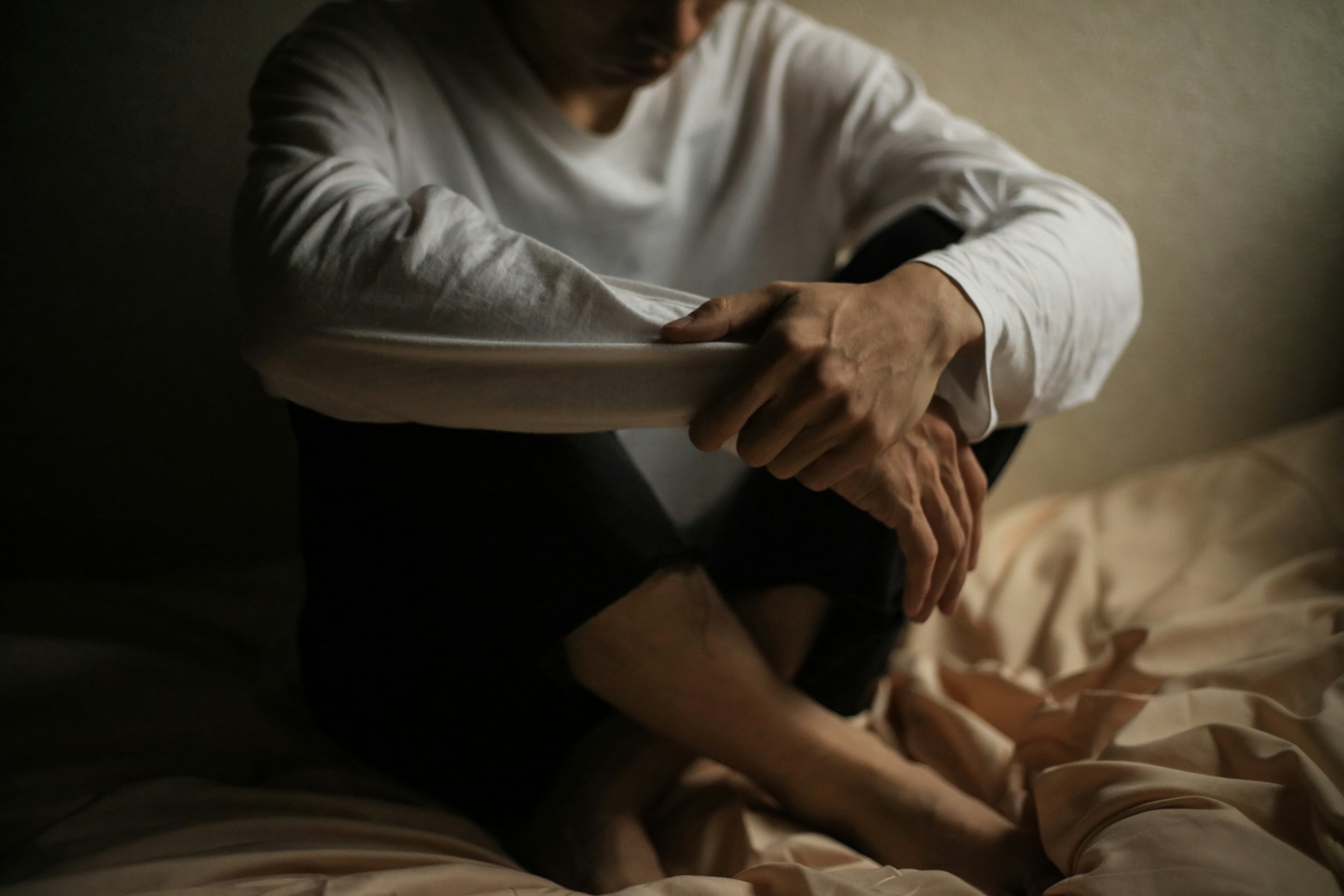Male postpartum depression is real. It is a form of depression characterized by significant mental and emotional distress that often goes unidentified because so many men are reluctant to talk about their feelings or reach out for help.
The subject of dads’ mental health is always met with skepticism. You always get, ‘What about mom?’ in response. And moms’ mental health is important. But dads’ is, too. – Anthony J. Nedelman
It has been estimated that approximately twenty-five percent of new dads experience mild symptoms of postpartum depression following the birth of a new baby, and 8 to 10 percent are diagnosed with it. This has been corroborated by a 2023 survey of fathers in the United States conducted by Verywell Mind and Parents that found that 9 percent of men experienced postpartum depression, and another 12 percent said both they and their spouses struggled with it.
What does male postpartum depression look like?
Symptoms of male postpartum depression can include anger, irritability, anxiety, sadness, intrusive thoughts of inadvertently harming the baby, loss of interest in hobbies or activities usually enjoyed, aloofness, violent or aggressive behavior, headaches, muscle pain, digestive problems, changes in appetite and sleep patterns, fatigue, indecisiveness, trouble concentrating or making decisions, emotional blunting, impulsivity, and/or feelings of worthlessness or inappropriate guilt.
Why do men get postpartum depression?
Many potential risk factors can contribute to male postpartum depression. The most common ones include hormonal changes, pre-existing history of depression or anxiety, feeling disconnected and excluded as mom bonds with baby and focuses on meeting his or her needs, marital discord, sleep deprivation, financial stress, spouse with postpartum depression, and feeling overwhelmed by the added responsibilities of parenthood.
How is it diagnosed?
Most often, male postpartum depression is diagnosed through a clinical interview with a mental health professional. Assessment may, however, be difficult, as men tend to be less expressive about their feelings, hide or underreport their symptoms, and be reluctant to seek professional help.
Help for fathers
Postpartum support groups that cater specifically to men provide a safe space for them to discuss their concerns, feel understood by others going through a similar situation, know that they are not alone, and that feeling depressed or anxious after a huge lifestyle change such as the birth of a child is no cause for shame.
Family-oriented postpartum support groups for couples also provide a safe space for new parents to come together and feel encouraged and socially supported, as they share their experiences and learn healthy coping and relationship skills from one another.
Counseling is another venue to explore. Recommended treatments include cognitive behavior therapy (CBT) and interpersonal therapy (IPT), which are both evidence-based options known to help relieve symptoms of depression.
Self-help practices to reduce symptoms of male postpartum depression
Examples of self-help practices that have been shown to reduce stress and symptoms of depression include getting regular exercise; eating a healthy, balanced diet; getting enough sleep; avoiding reckless behavior such as drinking or gambling; journaling; and practicing relaxation, mindfulness, and grounding techniques.
One of the most important things you can do, however, is communicate openly about your feelings. Closing yourself off can only worsen your condition and keep you from getting the help you need.
If you have questions about this article on male postpartum depression or would like to set up a risk-free appointment to meet with one of the faith-based counselors at our location, please don’t hesitate to give us a call.
References:
Jenna Carberg. “Postpartum Depression in Men.” PostpartumDepression.org. Reviewed on July 23, 2023. postpartumdepression.org/postpartum-depression/men/.
Sarah Sheppard. “How Postpartum Depression Affects Dads.” Verywell Mind. Updated August 7, 2023. verywellmind.com/what-is-male-postpartum-depression-5188022.
Photo:
“Green Hills”, Courtesy of Rob Binder, Unsplash.com, Unsplash+ License
-
Sandra Stein: Author
Sandra Kovacs Stein was born in Calcutta, India, grew up in the Dominican Republic, and went to school in Canada, where she planned to settle after getting her Master’s degree in Speech Pathology and Audiology. Instead, she fell in love with an Ameri...
DISCLAIMER: THIS ARTICLE DOES NOT PROVIDE MEDICAL ADVICE
Articles are intended for informational purposes only and do not constitute medical advice; the content is not intended to be a substitute for professional medical advice, diagnosis, or treatment. All opinions expressed by authors and quoted sources are their own and do not necessarily reflect the opinions of the editors, publishers or editorial boards of Stone Oak Christian Counseling. This website does not recommend or endorse any specific tests, physicians, products, procedures, opinions, or other information that may be mentioned on the Site. Reliance on any information provided by this website is solely at your own risk.






